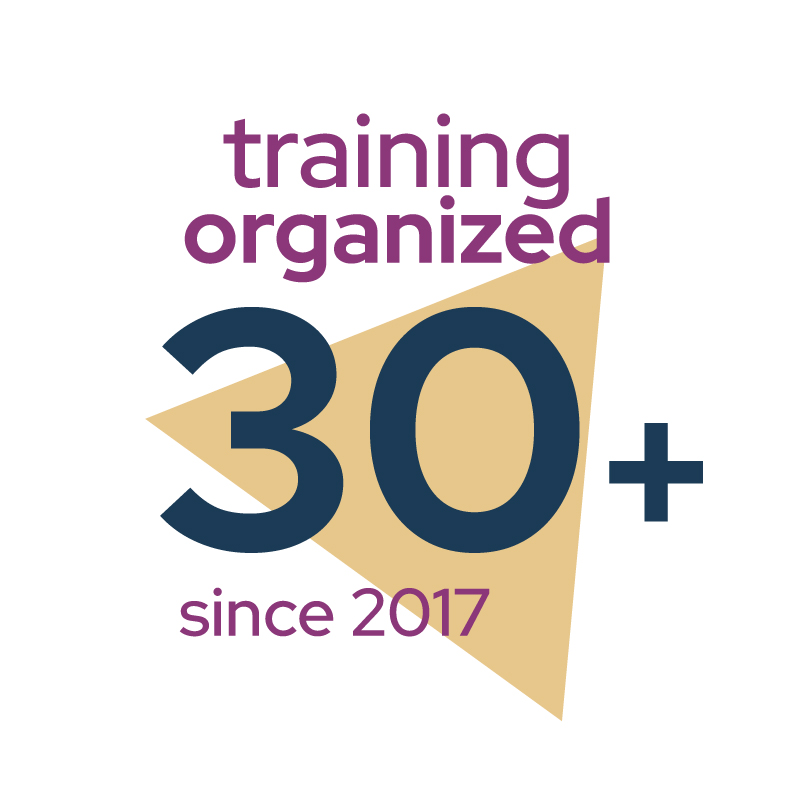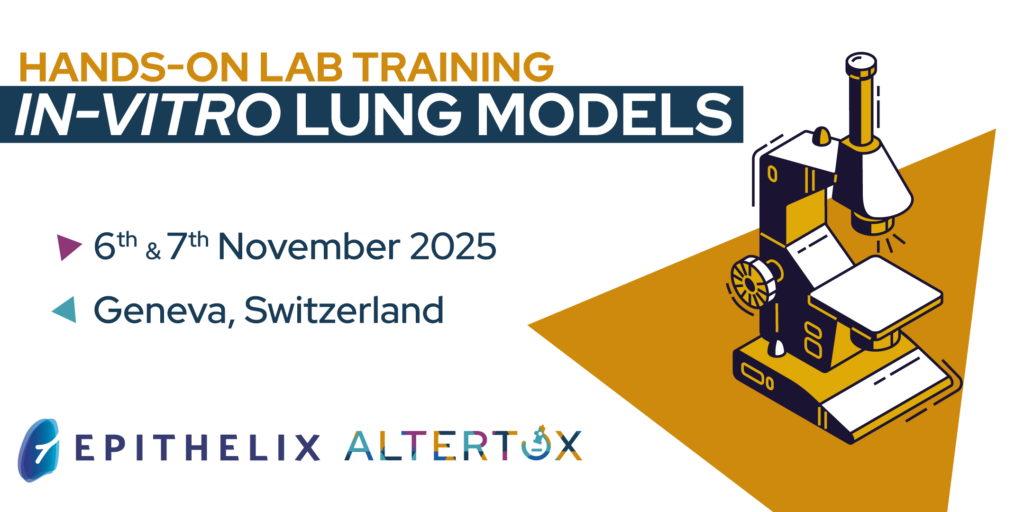Trainings

Did you know that in the laboratory training we organize, there are break-out groups of maximum 4 people to allow everyone to participate!
Did you know we provided trainings also for EFSA and ECHA on endocrine disrupters?
Since the creation of Altertox, there were more than 30 trainings organized for wet (in vitro, organoids) and dry lab (PBPK, OECD QSAR).
A NAM being published or validated is not enough for peers to start using it.
Learn the latest technologies
from the best in the field.
Interactive and In-depth Activities
- Getting hands-on experience with cutting-edge NAMs technologies or wet and dry lab with the science key opinion leaders who are pioneering the field
- Our trainings target participants from industry, academia and regulators
Networking Opportunities:
- Co-host connects with peers, prospects and collaborators
Different Formats Available
- Altertox offers hands on training for beginners and master classes for advanced
- Altertox supports you in the design, logistics, speakers’ invitation & marketing
our past trainings
- TATAbox Demo, 16 Feb 2023 / Altertox
- acCELLerate training, Skin Sensitization, 15-16 june 2023
- Cehtra Master Class, Integrating NAMs into next generation risk assessement, 26-27 oct 2023
- Epithelix training, In Vitro Lung models, 9-10 nov 2023
- Skin sensitization, Thu, Mar 10, 2022 8:00 AM / Accellerate
- Novel in vitro methods and AOP approaches in genetic toxicology, Thu, Oct 6, 2022 8:30 AM / Toxys
- In vitro lung models, Thu, Nov 3, 2022 9:00 AM / Epithelix
- Lunchtalk: “Scientometrics” – Dr Georgina Harris, Frontiers – 9 February;
- Lunchtalk: “Scientometrics” – Dr Georgina Harris, Frontiers – 9 February;
- Remote Master Class: “Multi-Organs chip” – Tissuse – 21-23 april ;
- Remote Hands-on training: “PBPK Modelling and quantitative in vitro-in vivo extrapolation” – WUR – 29-30 april
- Lunchtalk: “Did the 3Rs community made the wrong communication strategy?” – FRESCI, Dr Marco Straccia
- Lunchtalk: “Secret for winning a grant a copying when losing it” – VUB, Prof. Mathieu Vinken – 11 September
- Online Training: “In vitro bioanalysis for assesing endrocrine disrupting compounds (edcs)” – ECHA – 22 & 23 October
- Quantitative Human Cell & Effect Based In Vitro Bioanalysis for Assessing Endocrine Disrupting Compounds (EDCs) – EFSA – 14 & 15 March, Parma – Italy
- In Vitro Exposure Systems and Dosimetry Assessment Tools for Aerosol Inhalation Toxicology – PMI – 23 & 24 May – Neuchatel, Switzerland
- PBPK Modeling and quantitative in vitro-in vivo extrapolations – WAGENINGEN University and Research – 3 & 4 October – Wageningen, Netherlands
- Novel In Silico Models for Assessment of Cosmetics – Practical Applications – Mario Negri Institute – 17 & 18 octobre – Milano, Italy
- In Vitro Assays Development & Good In Vitro Method Practices – RI.SE – 7 & 8 November – Gothenburg, Sweden
- In Vitro Lungs Model – Epithelix – 14 & 15 November – Geneva, Switzerland
- Acute and chronic cardiotoxicity – Ncardia – 7t & 8 November – Leiden, Netherlands
- Skin Sensitization – BASF – 22 & 23 November, Ludwigshafen – Germany
- In Vitro Lung Models – Epithelix – 15 & 16 November – Geneva, Switzerland
- Good Cell Culture Practice (GCCP) in Toxicology – Evercyte – 30 & 31 October – Vienna, Austria
- PBPK modelling for quantitative in vitro-in vivo extrapolation – KU Leuven – 4 & 5 October – Leuven, Belgium
- Update in in-vitro liver system: Cells to organoid. Application in DMPK and toxicology – Biopredic – 31 May & 1 June – Paris, France
- Use of Weight of Evidence with non-testing methods for cosmetics ingredients – Mario Negri – 22 & 23 May – Milan, Italy
- Current Applications of Organs-on-a-Chip for the Pharmaceutical Industry – Mimetas – 16 & 17 November – Leiden, The Netherlands
- In Vitro Lung Models – Epithelix – 16 & 17 November – Geneva, Switzerland
- 2D – 3D Liver & Skin & Gastrointestinal Regulatory Model – Tubitak– 2 & 3 November- Istanbul, Turkey
- Kidney Toxicity Testing – Season 2 – Evercyte – 30 & 31 October – Vienna, Austria
- In vitro Simulation of Fracture Healing and Bone Remodeling – Charite – 19 & 20 October – Berlin, Germany
- Skin Sensitization – BASF – 12 & 13 October – Ludwigshafen, Germany
- In Silico Tools in Chemical’s Hazard Assessments – Toxmind -5 & 6 October – Brussels, Belgium
- In Vitro-In Vivo Extrapolation (IVIVE) to Support Accurate Prediction of Hepatic Drug Disposition – KU Leuven – 14 & 15 September – Leuven, Belgium
- In Vitro Tools for Assessing EDC – BDS – 6 & 7 September – Amsterdam, The Netherlands
- Updates on the Hepatotoxicity AOP Landscape and on the ADMET Field-SEASON 2 – Biopredic – 22 & 23 June – Rennes, France
- Tools for Read-across – Ecopa – 15 & 16 June – Helsinki, Finland
- In vitro skin and eye models – VUB – 1 & 2 June – Brussels, Belgium
Contact Us
If you are interested in working with us – just send a message

